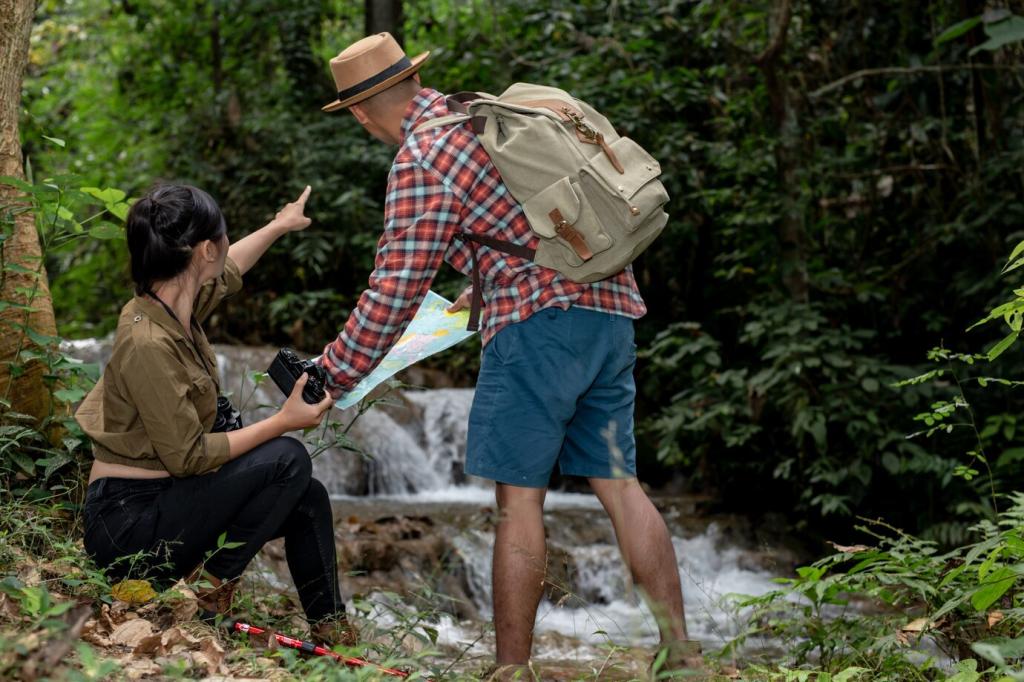Responsible Wildlife Tourism Tips
Discover how to enjoy wildlife experiences that benefit both animals and local communities while preserving the beauty of natural habitats. Responsible wildlife tourism ensures that your adventures are ethical, safe, and sustainable—not only providing unforgettable encounters but also contributing positively to conservation efforts. By practicing thoughtful tourism, you help create a future where humans and wildlife coexist harmoniously. Explore the essential tips and insights below to become a more considerate and impactful wildlife traveler.

Understanding Ethical Wildlife Tourism

Exploitative attractions frequently disguise themselves as educational or conservation-focused experiences. However, they may involve unethical practices such as wildlife petting, shows, or forced animal performances. These activities often cause significant stress or harm to animals, stripping them of their natural behaviors and habitats. Choosing reputable, conservation-oriented tours requires vigilance and discernment. Look for operations that prioritize animal welfare, such as sanctuaries with no-contact policies, and avoid establishments that prioritize profit over ethics. By recognizing the signs of exploitation, you can take a stand against animal cruelty and encourage a shift toward responsible tourism.
Minimizing Your Impact on Wildlife
Maintaining an appropriate distance when observing wildlife is critical for both animal safety and your own. Approaching animals too closely can cause stress, interrupt natural activities, or even provoke defensive behavior that endangers everyone involved. Observing animals from a respectful distance helps prevent the spread of disease and allows creatures to act naturally, unimpeded by human presence. Invest in quality binoculars or cameras with zoom lenses to satisfy your curiosity without intrusion. It’s important to trust guides and follow their instructions on proximity, as their knowledge ensures the safety and comfort of both humans and wildlife.
Choosing Responsible Tour Operators
Reliable tour operators openly share information about certifications, staff training, and commitments to conservation. Investigate their affiliations with recognized wildlife and environmental organizations—legitimate partnerships often reflect robust, enforceable standards. Ask detailed questions about how wildlife is treated, group sizes, and impact monitoring. Operators invested in responsible tourism typically limit group size to reduce disturbance, inform guests about local conservation challenges, and actively support research or rehabilitation efforts. Clearly articulated codes of conduct and wildlife welfare policies are hallmarks of a trustworthy operator.
Carefully scrutinize the nature of wildlife interactions proposed by any operator. Ethical operators avoid promoting close contact or performances and instead focus on observing animals in the wild or in reputable rehabilitation settings. Experiences should revolve around natural animal behavior with no coercion or direct feeding involved. If an interaction feels staged, unnatural, or designed for human amusement rather than learning and appreciation, it’s best avoided. By prioritizing observation rather than interaction, you ensure animals remain undisturbed and free from stress, while your visit helps to fund ongoing conservation projects.
Responsible operators understand their role extends beyond just wildlife and includes supporting the people who live alongside these animals. Seek out companies that invest directly in local education, health, or conservation initiatives. Operators involved in community-based tourism consult with local residents, train guides from the area, and funnel a portion of profits into infrastructure or wildlife protection programs. When your tour dollars support communities as well as nature, you help create lasting economic incentives for locals to protect wildlife, ensuring long-term benefits for all involved.

